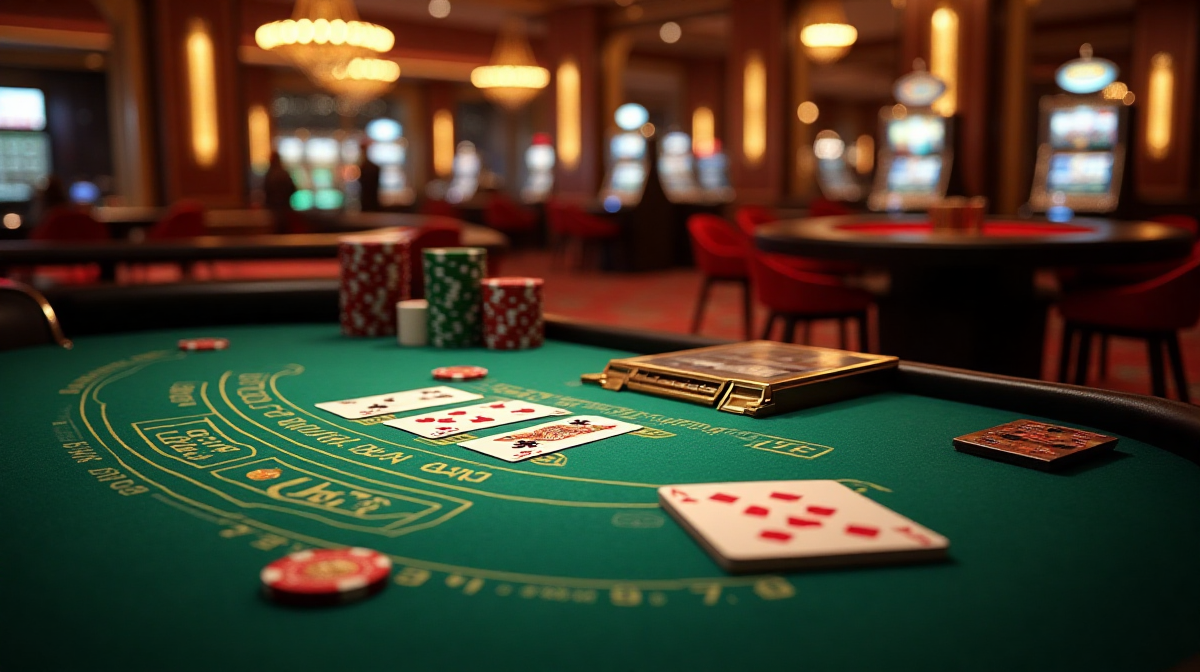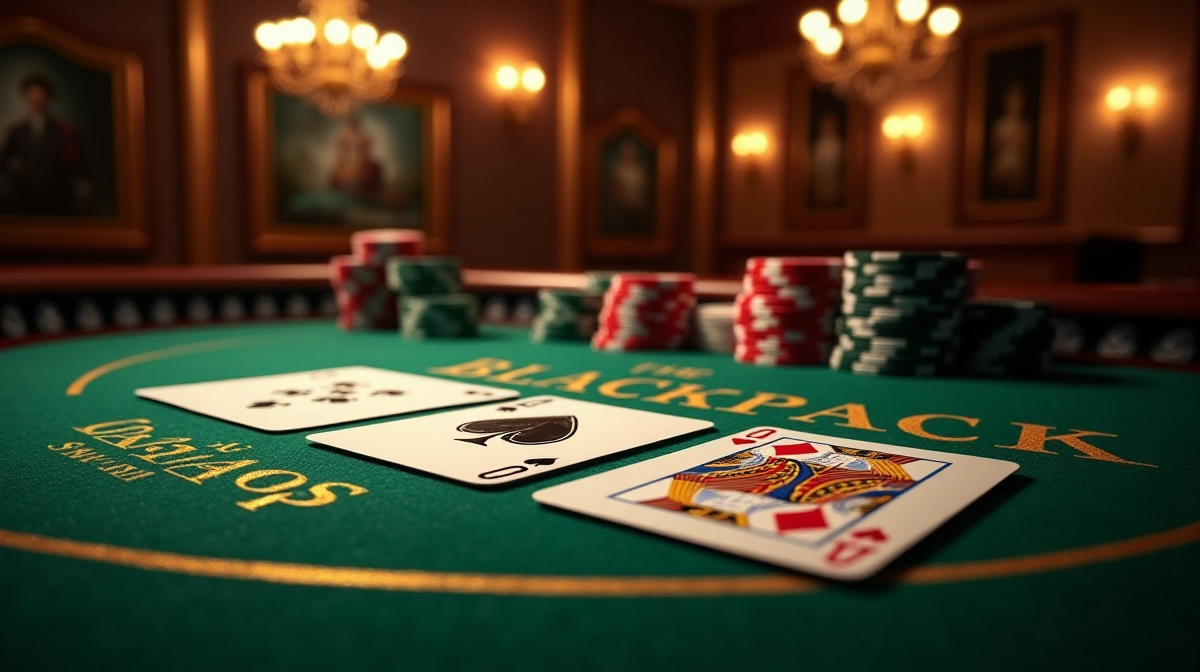What Does 'Blackjack' Really Mean?
The Surprising Origin of a Casino Staple
Blackjack. The name evokes images of smoky casinos, high-stakes drama, and the thrill of beating the dealer. It’s a game enjoyed by millions globally, a cornerstone of both land-based and online gambling platforms like betfuse. However, few players stop to consider the story behind the name. Is it simply a descriptive term, or does it hold a deeper, more fascinating history?
Briefly explain the popularity of Blackjack
Blackjack’s enduring appeal lies in its blend of simplicity and strategy. Unlike some casino games that rely heavily on luck, Blackjack allows players to influence their outcome through informed decisions. This element of skill, combined with the fast-paced action, makes it a consistently popular choice. Many players also seek out resources to improve their gameplay, including looking for betfuse prediction for today sure wins today football to supplement their strategy – though ultimately, Blackjack retains an element of chance.
Thesis statement: Blackjack’s name and origins are more nuanced than many players realize, evolving from historical card games and carrying cultural connotations.
This article will delve into the origins of Blackjack, exploring its historical roots, the interesting story behind its name, and its evolution into the game we know today. It’s a journey through French aristocracy, American gold rushes, and ongoing etymological debates.
The Historical Roots: Tracing Blackjack’s Ancestry
French Origins: Vingt-et-Un
The story of Blackjack begins in France during the 18th century with a game called Vingt-et-Un – literally, “Twenty-One.” This early version of the game shared many similarities with modern Blackjack, with the goal being to reach a hand total as close to 21 as possible without exceeding it.
Early variations & gameplay in 18th-century France
Early variations of Vingt-et-Un differed slightly from today's game. For example, the value of the Ace wasn’t always flexible. Rules also varied between regions, contributing to a diverse landscape of card games.
Popularity among the aristocracy
Vingt-et-Un quickly gained popularity among the French aristocracy, becoming a fashionable pastime in the salons and gambling houses of the time.
Arrival in America: American Variations & Evolution
The game crossed the Atlantic with French colonists, finding a new home in New Orleans in the early 19th century. However, it wasn’t long before American variations began to emerge.
Introduction by French colonists to New Orleans
New Orleans, a vibrant port city with a diverse population, served as a melting pot for cultures and gambling traditions. Vingt-et-Un adapted to its new surroundings, evolving with the tastes of American players.
The shift to using a 3:2 payout for Blackjack.
A crucial change occurred when American casinos introduced a 3:2 payout for a Blackjack (an Ace and a ten-value card), making the game more attractive to players. This payout remains standard in many casinos today, though variations exist. Players looking for the best odds might even check blackjack betway for favorable rules.
The ‘Blackjack’ Name: Emergence & Popularization
The Gold Rush Connection: Why Blackjack?
The commonly accepted origin of the name “Blackjack” dates back to the California Gold Rush in the 1870s. Gambling saloons sprang up throughout the gold mining towns, and Vingt-et-Un was a popular attraction.
Association with slang terms for a winning hand
During this era, a winning hand consisting of the Ace of Spades and a black Jack (either a Jack of Spades or a Jack of Clubs) was particularly valuable. Gamblers began referring to this hand as “Blackjack,” and the name gradually became associated with the entire game. Looking for an edge in any game requires understanding the nuances, and some players turn to resources like betfuse telegram for potential insights, however, relying solely on predictions is never a guaranteed path to success.
Context of gambling during the Gold Rush era – increased popularity
The Gold Rush created a climate of risk-taking and fortune-seeking, fueling the growth of gambling and the popularity of card games like Blackjack.
Comparing to Other Contemporary Card Games
It’s important to note that other “21” games existed at the time, leading to some confusion and overlap in terminology.
Distinguishing between Blackjack and other '21' games.
Blackjack distinguished itself through its specific payout structure and rules, gradually solidifying its identity as a unique game.
The Late 19th/Early 20th Century: Solidifying the Name
Transition from regional slang to common terminology.
By the late 19th and early 20th centuries, “Blackjack” had transitioned from regional slang to common terminology, becoming the universally recognized name for the game.

Etymological Debate & Alternative Theories
Investigating Other Potential Origins
While the Gold Rush explanation is the most widely accepted, other theories regarding the origin of the name “Blackjack” have been proposed.
Connection to African American Vernacular English - alternative theories.
Some researchers suggest a possible connection to African American Vernacular English (AAVE). In the 19th century, “blackjack” was sometimes used as a slang term for money in AAVE, and it’s theorized that this usage may have influenced the naming of the game. However, definitive evidence linking the two is lacking and this remains a sensitive area requiring careful consideration.
Challenges to the Gold Rush narrative.
Some historians question the completeness of the Gold Rush narrative, pointing to limited documentation from that period.
Lack of concrete proof & ongoing discussion
Why definitive answers are hard to find.
The lack of comprehensive historical records makes it difficult to definitively prove the origin of the name. The oral tradition of gambling and the evolving nature of slang contribute to the ambiguity.

Blackjack Today: Evolution and Modern Meaning
Global Variations and Rule Sets
Differences in European vs. American Blackjack
Today, Blackjack is played worldwide, with variations in rules and gameplay. European Blackjack, for example, often differs from American Blackjack in terms of dealer hitting rules and doubling down options.
Introduction of various game mechanics
Modern Blackjack has also seen the introduction of various game mechanics, such as side bets, adding further complexity and excitement to the game. The core concept, however – getting as close to 21 as possible – remains the same. Understanding the blackjack meaning is key no matter where you play.
Blackjack in Popular Culture
Portrayals in movies, literature and media.
Blackjack has become a staple in popular culture, frequently featured in movies, literature, and television shows, often portraying the high-stakes world of casino gambling.
What “Blackjack” Means to Modern Players
Beyond a game, a cultural phenomenon, strategy, and risk.
For modern players, Blackjack is more than just a game; it’s a cultural phenomenon, a test of strategy, and a calculated risk. Platforms like betfuse provide access to the game for a wider audience, contributing to its continued popularity.
Conclusion: The Rich History Behind the Name
Recap: The layered history of ‘Blackjack’
The history of “Blackjack” is a layered and fascinating one, tracing its roots from 18th-century France to the American Gold Rush and beyond. The name itself has evolved over time, reflecting the cultural and historical context in which the game was played.
Final Thoughts: Appreciating the game's complex background.
While the precise origin of the name may remain a subject of debate, appreciating the game’s complex background adds another layer of enjoyment to the experience.
Consider the continued fascination with Blackjack highlighting its enduring appeal.
The continued fascination with Blackjack highlights its enduring appeal. It’s a game that continues to challenge, entertain, and captivate players around the world, ensuring its place as a casino classic for generations to come.

